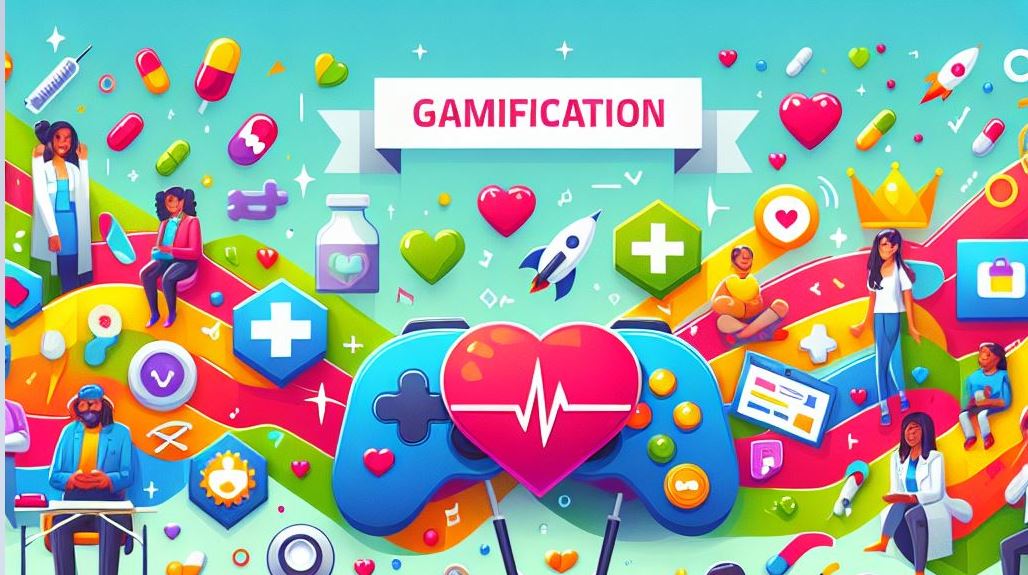Gamification for Health
We develop, evaluate and implement gamified and health game interventions for different health related purposes. Our target group consists of healthcare providers, health professionals, children, adolescents, families and patients.
Our interventions aim to:
- increase knowledge, understanding and skills
- support health, behavior change and healthy life style
- strengthen motivation, self-efficacy, self-esteem and health literacy
Key aspects in our projects are:
- Our interventions are developed and researched in a multidisciplinary team of researchers and stakeholders, based on the latest research evidence and relevant theory.
- We follow rigorously user-centered design process and principles and value highly the needs, experiences, perceptions and expectations of our target groups.
- We conduct studies during the development of the interventions to assess their usability and feasibility from the perspective of the users and contexts of use.
- We conduct studies during the implementation of the interventions to assess their validity, quality, effectiveness and implementation from the perspective of the user outcomes, stakeholders and organizations.
Our projects are multidisciplinary and international. We also participate in other projects in the field of serious gaming and gamification.
Projects
Dreamcatcher (ongoing)
Dreamcatcher project
During the Dreamcatcher project, a health game intervention aims to educate preschool-aged children (4-6y) to be prepared for anesthesia and to reduce their anxiety. Project is carried out together with the University of Iceland and studies are conducted in Finland and in Iceland.
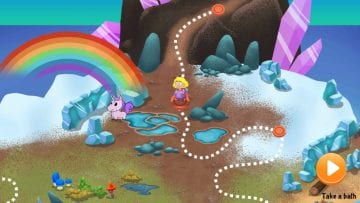
Read more:
Ingadóttir B, Laitonen E, Stefánsdóttir A, Sigurdardottir AO, Brynjólfsdóttir B, Parisod H, Nyman J, Gunnarsdottir K, Jonsdottir K, Salanterä S, Pakarinen A. Developing a health game to prepare preschool children for anesthesia: A formative research using child-centered approach. JMIR Serious Games, 20;10(1):e31471.
Contact information:
PI (University of Iceland): Brynja Ingadóttir, PhD, RN, CNS (Landspitali University Hospital), Associate Professor (University of Iceland), brynjain@hi.is
PI (University of Turku): Anni Pakarinen, PhD, MHSc, RN, anni.pakarinen@utu.fi
PhD researcher: Elina Laitonen, MHSc, RN, elina.r.salmi@utu.fi
HEAL (ongoing)
HEAL project
Health Equity for children and AdoLescents – Empowering Healthy Lifestyles with Smart Technologies
The HEAL Project is an international collaboration of Higher Education Institutions and SMEs led by the University of Turku in partnership with Univeristy of Jyväskylä, Uppsala University and the University of Lleida. HEAL project aims to develop and pilot test an innovative HEAL intervention for children and adolescents (10-13-year-old) including cutting-edge tools and technologies to foster their health literacy and empower them to adopt healthy lifestyles, and to ultimately promote their physical (physical activity, nutrition, sleep) and psychosocial health.
Read more:
Kubota K, Auxier J, Aslan F, Joronen K, Pakarinen A. 2024. Gamified Interventions for Promoting the Psychosocial Well-being of School-aged Children: A Scoping Review. Games for Health Journal, 13(4), pp. 234–244
Contact information:
PI Anni Pakarinen, PhD, MHSc, RN, anni.pakarinen@utu.fi
Funders:
The Finnish Nursing Education Foundation Turku University Foundation
Finland-China Food Health (FCFH) network, University of Turku
Turku University Hospital Foundation
The TechCampus Turku
CognitiveGameGait (ongoing)
The CognitiveGameGait Project designed, developed and is currently testing a Gamified Virtual Reality Environment where people with Parkinson’s Disease can train complex gait patters in a safe, customizable and replicable environment.
This project is carried out in collaboration with University of Lleida and Biomedical Research Institute of Lleida – Fundació Dr. Pifarré (IRBLleida).
Read more:
Masbernat-Almenara M, Bosch-Barceló P, Martínez-Navarro O, Tersa-Miralles C, Pakarinen A, Fernández-Lago H. 2024. A Gamified Virtual Environment Intervention for Gait Rehabilitation in Parkinson’s Disease: Co-Creation and Feasibility Study. Journal of Neuroengineering and Rehabilitation 21(1):107.
Bosch-Barceló, P., Climent-Sanz, C., Martínez-Navarro, O., Masbernat-Almenara, M., Pakarinen, A., Ghosh, P. K., & Fernández-Lago, H. 2024. A treadmill training program in a gamified virtual reality environment combined with transcranial direct current stimulation in Parkinson’s Disease: Study protocol for a randomized controlled trial. Plos one, 19(7).
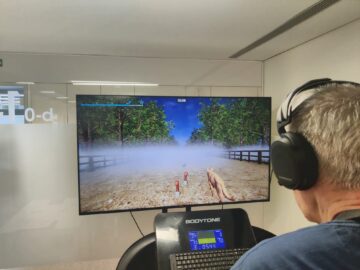
Contact information:
Pere Bosch Barcelo, Doctoral researcher, pere.bosch@udl.cat
Leukie: A Brave Adventure (ongoing)
Children with leukaemia face challenges in dietary management, including insufficient knowledge about dietary management, passive acceptance of dietary restrictions, lack of participation behaviour, and poor experience in dietary management. Leukie project aims to design and develop a serious game for dietary management based on the Fogg Behavior Model, targeting children with leukaemia to optimize their dietary management experience and promote healthy dietary behaviours.
Contact information:
Xiaolan Dong, Doctoral researcher, xiadon@utu.fi
NO! To smoking & FUME (ongoing)
NO! To smoking & FUME
The aim of the project is to increase understanding on health literacy, and tobacco-preventive health education needs and expectations from adolescents’ perspective. Further, the aim is to develop a digital health game that supports health literacy and a tobacco free lifestyle in 10 to 13-year-old early adolescents.
More information:
http://fume.utu.fi/
Fume on mukana Terveyskylä.fi:n Nuortentalon sovellusten joukossa!

Contact information:
PI Heidi Parisod, PhD, MHSc, PHN/RN, hemapar@utu.fi
Researcher Johanna Nyman, RN, MHsC, PhD
CANDY (ongoing)
Candy-project
Improving Children Hand Hygiene
Candy project targeted pre-school aged children’s hand hygiene in a novel way by developing, evaluating and implementing smart IoT-based and gamified intervention. Project was carried out together with the University of Bamberg and studies were conducted in Finland and in Germany.
Read more:
Graichen J, Stingl C, Pakarinen A, Rosio R, Terho K, Günther S, Salanterä S, Staake T. 2024. Improving hand hygiene of young children with a digital intervention: A cluster-randomised controlled field trial. Scientific Reports 14:6157.
Dangis G, Terho K, Graichen J, Günther S, Rosio R, Salanterä S, Staake T, Stingl C, Pakarinen A. Hand hygiene of kindergarten children—Understanding the effect of live feedback on handwashing behaviour, self-efficacy, and motivation of young children: Protocol for a multi-arm cluster randomized controlled trial. PlosOne.
Graichen J, Stingl C, Günther SA, Staake T, Pakarinen A, Rosio R, Salanterä S, Terho T. 2022. No Longer Without a Reward: Do Digital Rewards Crowd-Out Intrinsic Motivation of Young Children. International Conference on Information Systems 2022. Conference Proceeding.
Contact information:
PI (University of Turku): Anni Pakarinen, PhD, MHSc, RN, anni.pakarinen@utu.fi
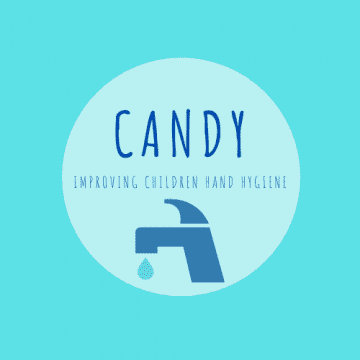
Stepping (2018-2023)
Stepping project (2018-2023)
During the Stepping project, led by Stepfamily association of Finland, a mobile assisted intervention was developed. Intervention aims to support the wellbeing, relationships and functioning of stepfamilies.
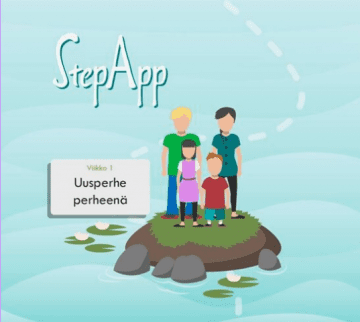
Read more:
Selänne L. Heikinheimo K, Pakarinen A. 2022. Mobiiliavusteinen ja ammatillisesti ohjattu uusperheinterventio – Intervention soveltuvuus uusperheiden ja sote-ammattilaisten näkökulmasta. HOITOTIEDE 34 (1), 15–26.
Pakarinen A & Heikinheimo K. 2019. Uusi perhe haastaa uusperheen – uusparien ja ammattilaisten näkemyksiä uusperheiden haasteista. Perheterapia 2/2019, 6-17.
Contact information:
PI Anni Pakarinen, PhD, MHSc, RN, anni.pakarinen@utu.fi
WellWe- HyväMe (2015-2018)
WellWe- HyväMe project (2015-2018)
The aim of WellWe/HyväMe project was to develop and evaluate a gamified application for pre-school aged children, their families and healthcare professionals at child health clinics. WellWe-application is concentrating on promoting family’s healthy nutrition, physical activity and resources needed to support their wellbeing in their daily life.
Read more:
Selänne L, Pasanen M, Aslan F, Pakarinen A. 2023. Gamified intervention for health promotion of families in child health clinics — A cluster randomised trial. Online in Simulation and Gaming 55(3), https://doi.org/10.1177/10468781241236706
Pakarinen A. 2018. The development and feasibility of gamified digital intervention aiming to promote physical activity in early childhood. PhD thesis 21.09.2018, University of Turku. https://www.utupub.fi/handle/10024/145830
Contact information:
PI Anni Pakarinen, PhD, MHSc, RN, anni.pakarinen@utu.fi
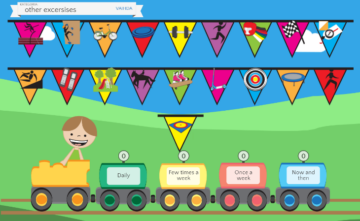
Movenator (2014-2020)
Movenator project (2014-2020)
During the Movenator project, a mobile game intervention was developed. Intervention aims to promote pre-adolescents’ physical activity and physical activity self-efficacy.
Read more:
Pakarinen A. 2024. Miten pelillisyyden avulla voidaan edistää lasten ja nuorten liikuntaa? Luettavissa: Terveyttä Tieteestä- blogista
Kubota K, Säteri E, Joelsson TN, Mäkilä T, Sanna Salanterä S, Pakarinen A. 2022. Pilot Study and Gamification Analysis of a Theory-based Exergame. International Journal of Serious Games, 9(3), 63–79.
Pakarinen A, Parisod H, Smed J, Salanterä S. 2017. Health game interventions to enhance physical activity self-efficacy of children: a quantitative systematic review. Journal of Advanced Nursing 73(4), 794-811.
Pakarinen A. 2015. Fyysistä aktiivisuutta edistävä digitaalinen terveyspeli – varhaisnuorten näkemys terveyspelin sisällöstä. Pro gradu -tutkielma, hoitotiede, Turun yliopisto
Contact information:
PI Anni Pakarinen, PhD, MHSc, RN, anni.pakarinen@utu.fi
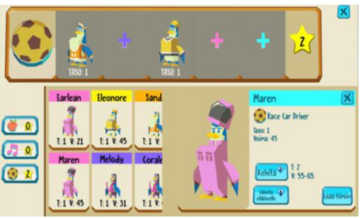
EmpowerKids (2016-2018)
EmpowerKids (2016-2018)
A gamified intervention to promote health of children (6-13 y) was developed during ERDF funded cross-border project (EmpowerKids 2016-2018). Intervention was found to be a feasible and potential method to promote the health among Finnish, Latvian and Estonian children.
Read more:
Skogberg M, Mackiewicz K, Mänd K, Tuuling L, Urdzina-Merca Indra, Salanterä S, Pakarinen A. 2022. Promoting the health and wellbeing of children: a feasibility study of a digital tool among professionals. Plos One 17(3), e0265355.
Pakarinen, A., & Mackiewicz, K. (2017). Games can help empower children from low-income families to take healthy choices in daily life. European Journal of Public Health, 27(suppl_3).
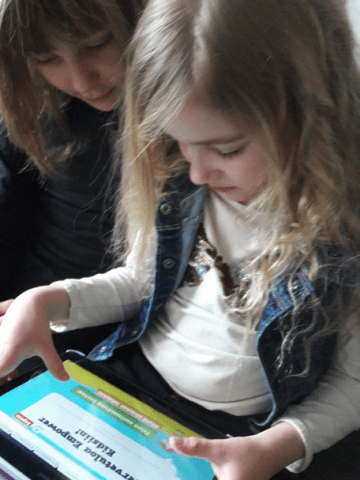
Contact information:
PI Anni Pakarinen, PhD, MHSc, RN, anni.pakarinen@utu.fi
PARAS (2020-2021)
PARAS (2020-2021)
PARAS-project was Funded by Business Finland Co-creation (1.3.-31.10.2021) and carried out together with Department of Computing, University of Turku, and the Faculty of Sport and Health Sciences, University of Jyväskylä. PARAS project proposed an ambitious solution for providing state-of-the-art playful health, learning and social content following the principles of platform economy.
Contact information:
PI Anni Pakarinen, PhD, MHSc, RN, anni.pakarinen@utu.fi
FUN (2013-2018)
The aim of FUN project was to evaluate feasibility and effectiveness of active video games related to the promotion of physical activity and motor performance in children with cancer.
More information:
Hamari, L., Järvelä, L. S., Lähteenmäki, P. M., Arola, M., Axelin, A., Vahlberg, T., & Salanterä, S. (2019). The effect of an active video game intervention on physical activity, motor performance, and fatigue in children with cancer: a randomized controlled trial. BMC research notes, 12, 1-7.
Kauhanen, L., Järvelä, L., Lähteenmäki, P. M., Arola, M., Heinonen, O. J., Axelin, A., … & Salanterä, S. (2014). Active video games to promote physical activity in children with cancer: a randomized clinical trial with follow-up. BMC pediatrics, 14, 1-10.
Contact information:
Lotta Hamari, PhD, MHSc, PT, lotta.hamari@utu.fi
Qvalidi 2019 Tool
Qvalidi 2019 tool
Qvalidi 2019 tool was developed during 2017-2018 among team of experts from health care and information technology. The Qvalidi 2019 tool was developed based on research and current guidelines that are concerning health applications (non medical devices). The original tool includes 49 questions that are devided into four areas: health/wellness, technical features, user orientation, and safety.
Qvalidi tool aims to evaluate the quality and validity of digital health applications and health games. Tool can be used by developers as a guidance in product development and by health care providers when choosing high quality digital health solutions to be implemented in health care. 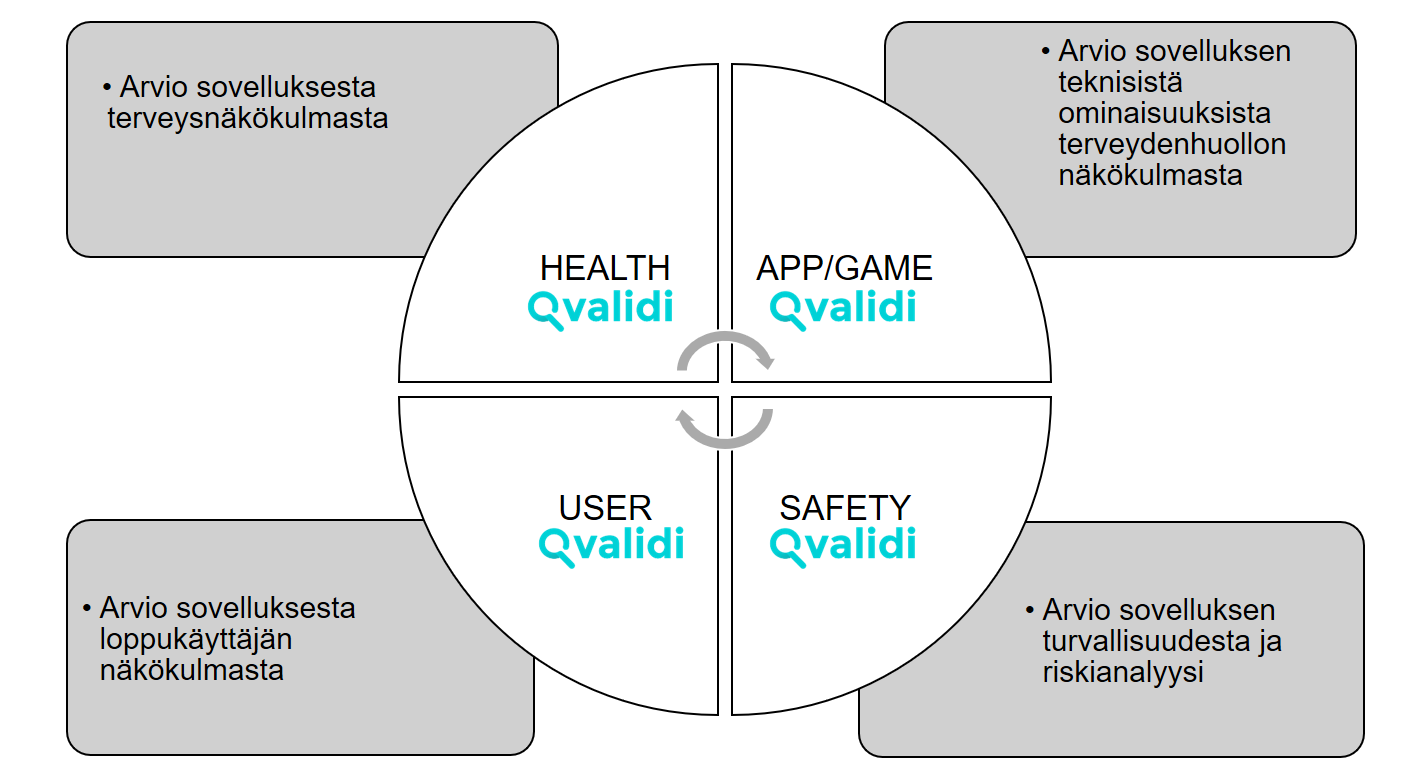
Currently, the on-going study on Qvalidi Tool aims to design a quantifiable assessment instrument based on its distinctive domains. The development engages the participation of diverse subject-matter experts in relevant fields of ehealth and research to validate the scoresheet items that represent the Qvalildi checklist. The study brings forth the Qvalidi scoresheet and user manual.
Read more:
Hamari L, Parisod H, Pakarinen A, Skogberg M, Aromaa M, Leppänen V, Salanterä S. 2020. Digitaalisten terveys- ja hyvinvointisovellusten kehittäminen, arviointi ja raportointi: Qvalidi 2019 -tarkistuslistan kehittäminen ja sisältö. Hoitotiede 2020, 32(1), 52–66
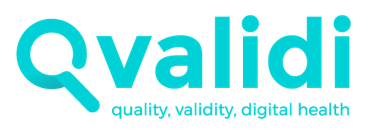
Contact information:
Lotta Hamari, PhD, MHSc, PT, lotta.hamari@utu.fi
Qvalidi 2019 Tarkistuslistan oikeudet omistaa Qvalidi asiantuntijaryhmä, joka on kehittänyt tarkistuslistan. Käyttö edellyttää asianmukaista viittausta artikkeliin: Hamari L, Parisod H, Pakarinen A, Skogberg M, Aromaa M, Leppänen V, Salanterä S. 2020. Digitaalisten terveys- ja hyvinvointisovellusten kehittäminen, arviointi ja raportointi: Qvalidi 2019 -tarkistuslistan kehittäminen ja sisältö. Hoitotiede 2020, 32(1), 52–66.
Qvalidi 2019 työkalun saa käyttöönsä täyttämällä käyttöpyyntölomakkeen.
Link for the Qvalidi checked applications
Principal investigator

Research team
PhD researchers
Kaile Kubota, MHSc, Doctoral researcher. Researcher in HEAL project.
Elina Laitonen, RN, MHSc, Doctoral researcher. Researcher in Dreamcatcher project.
Glenda Dangis, RN, MHSc, Doctoral researcher. Researcher in CANDY project.
Annika Nordberg, PHN, MHSc, Doctoral researcher. Researcher in HEAL project.
Sónia Borges Rodrigues, MNSc, Doctoral researcher (Nursing School of Lisbon). Researcher in No! to smoking project.
Xiaolan Dong, RN, MHS/MSN, Doctoral researcher. Researcher in Leukie project.
Pere Bosch Barcelo, FT, MSc, Doctoral researcher (Cotutelle agreement between University of Turku and University of Lleida). Researcher in CognitiveGameGait Project.
